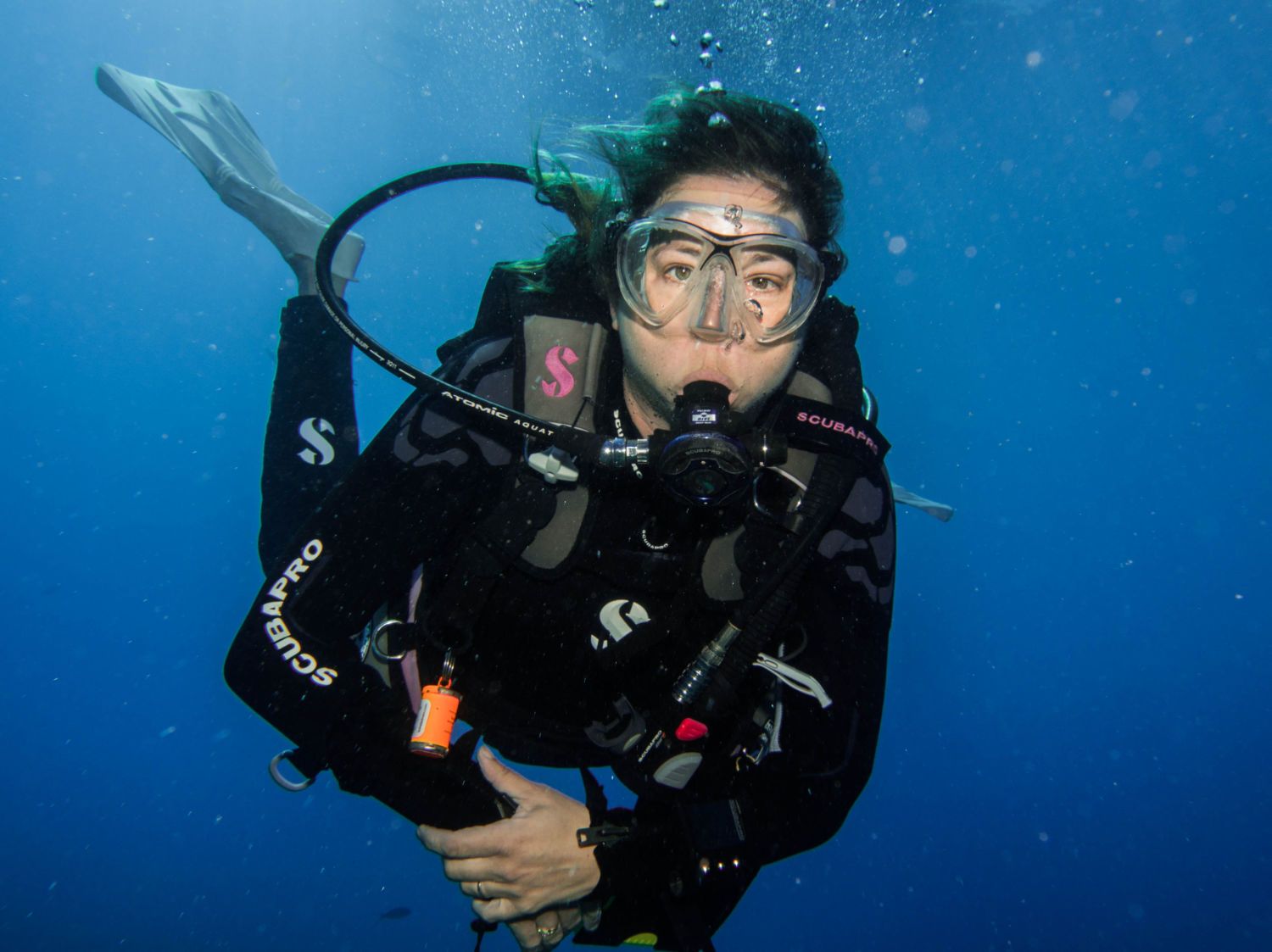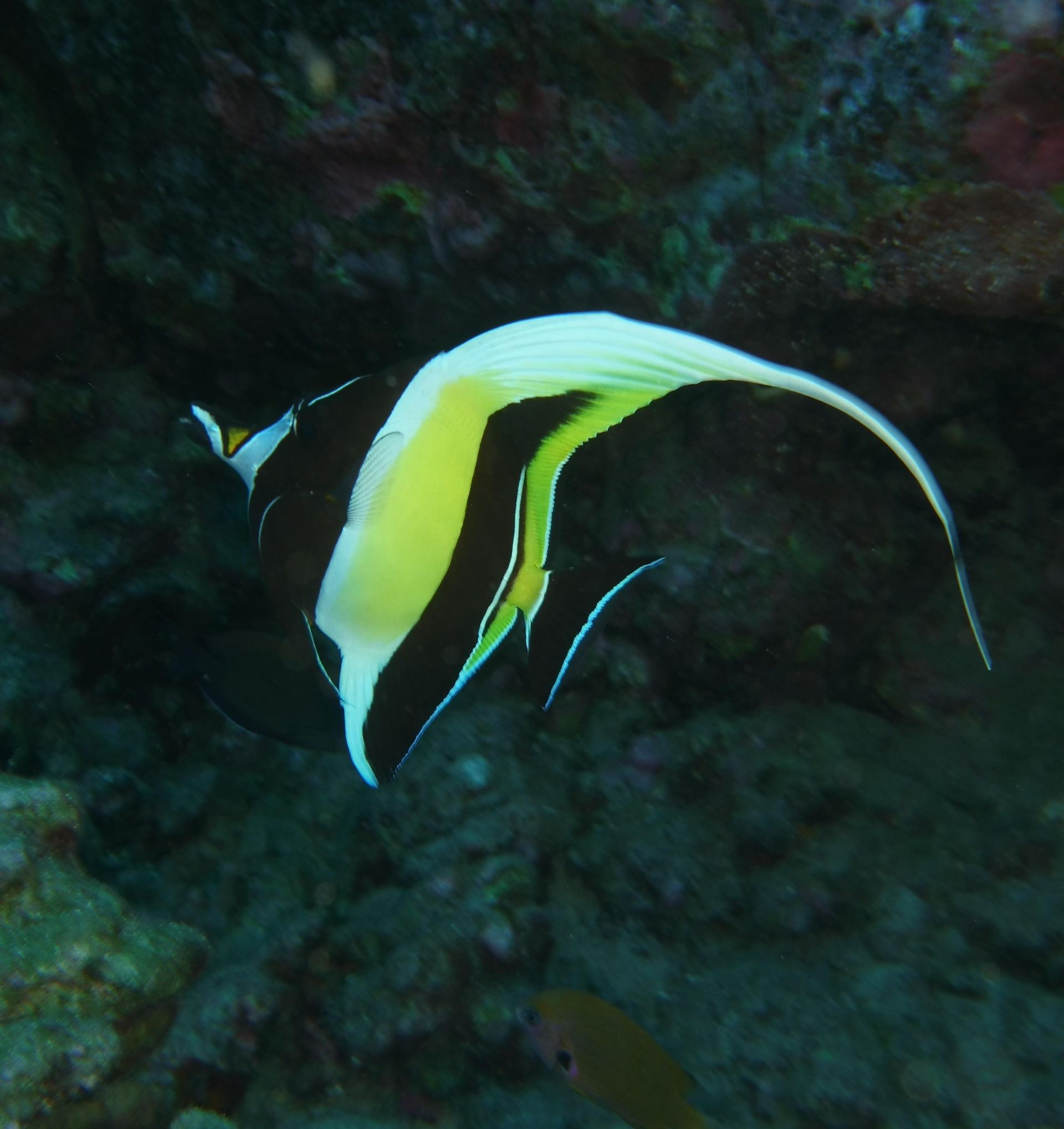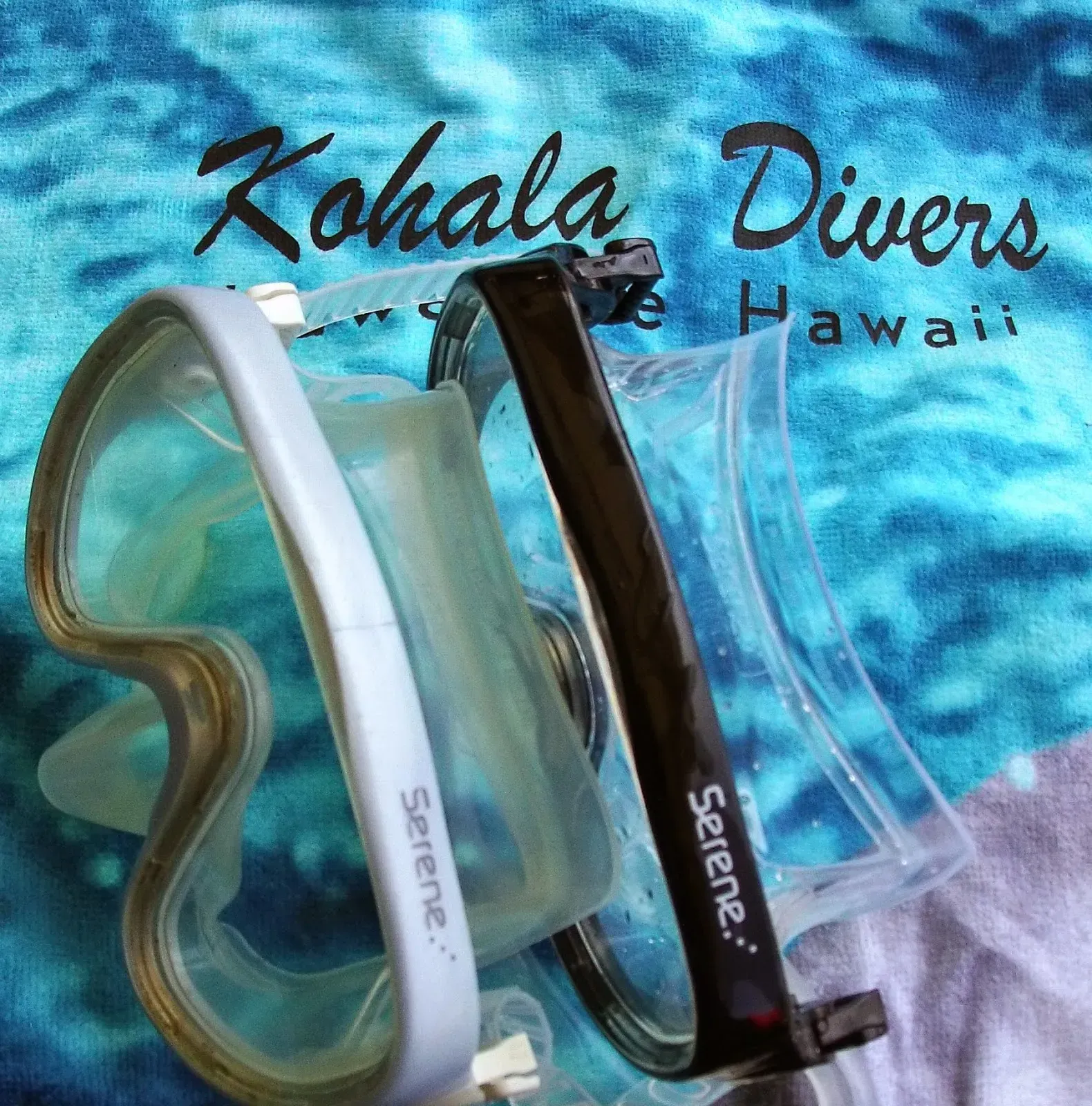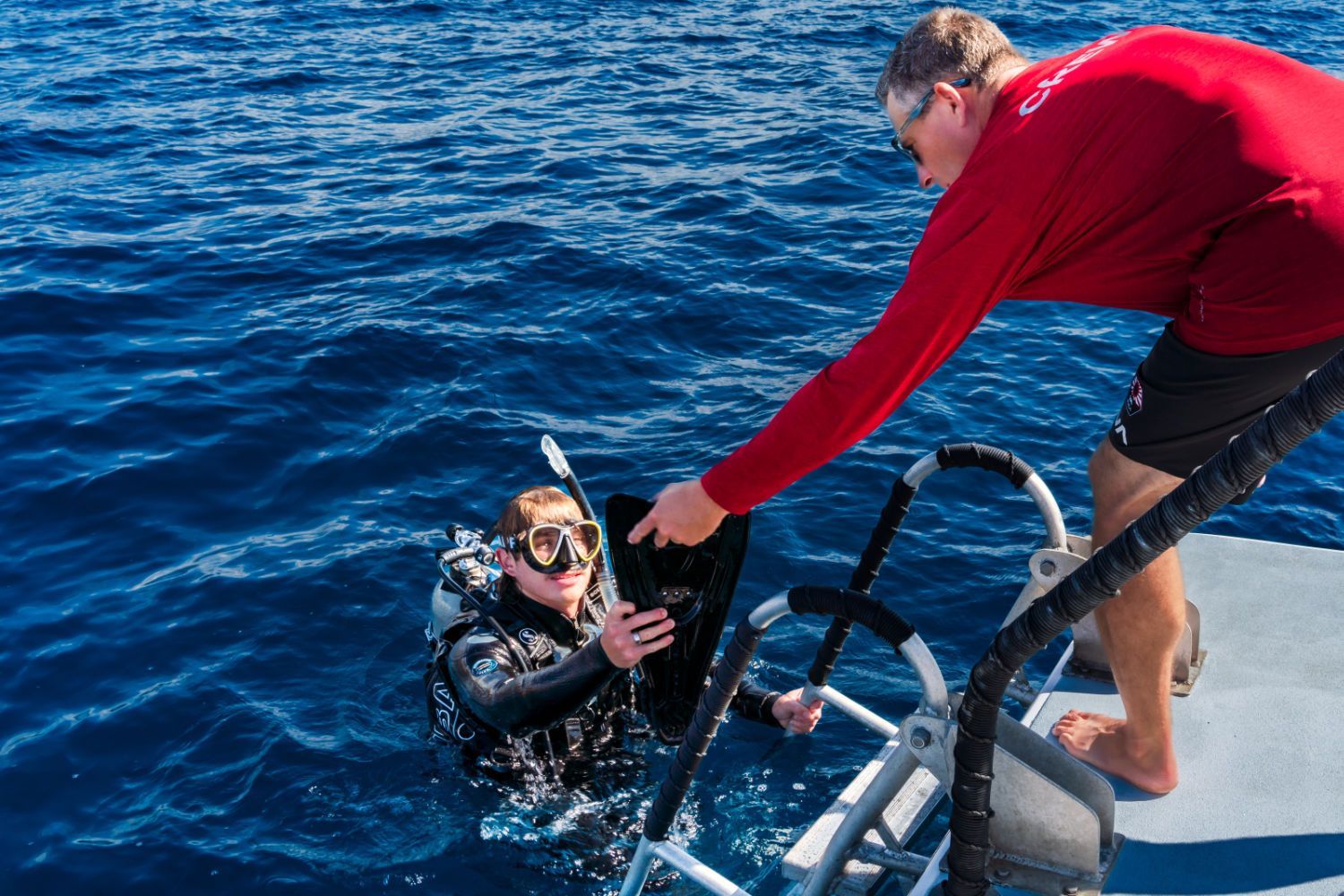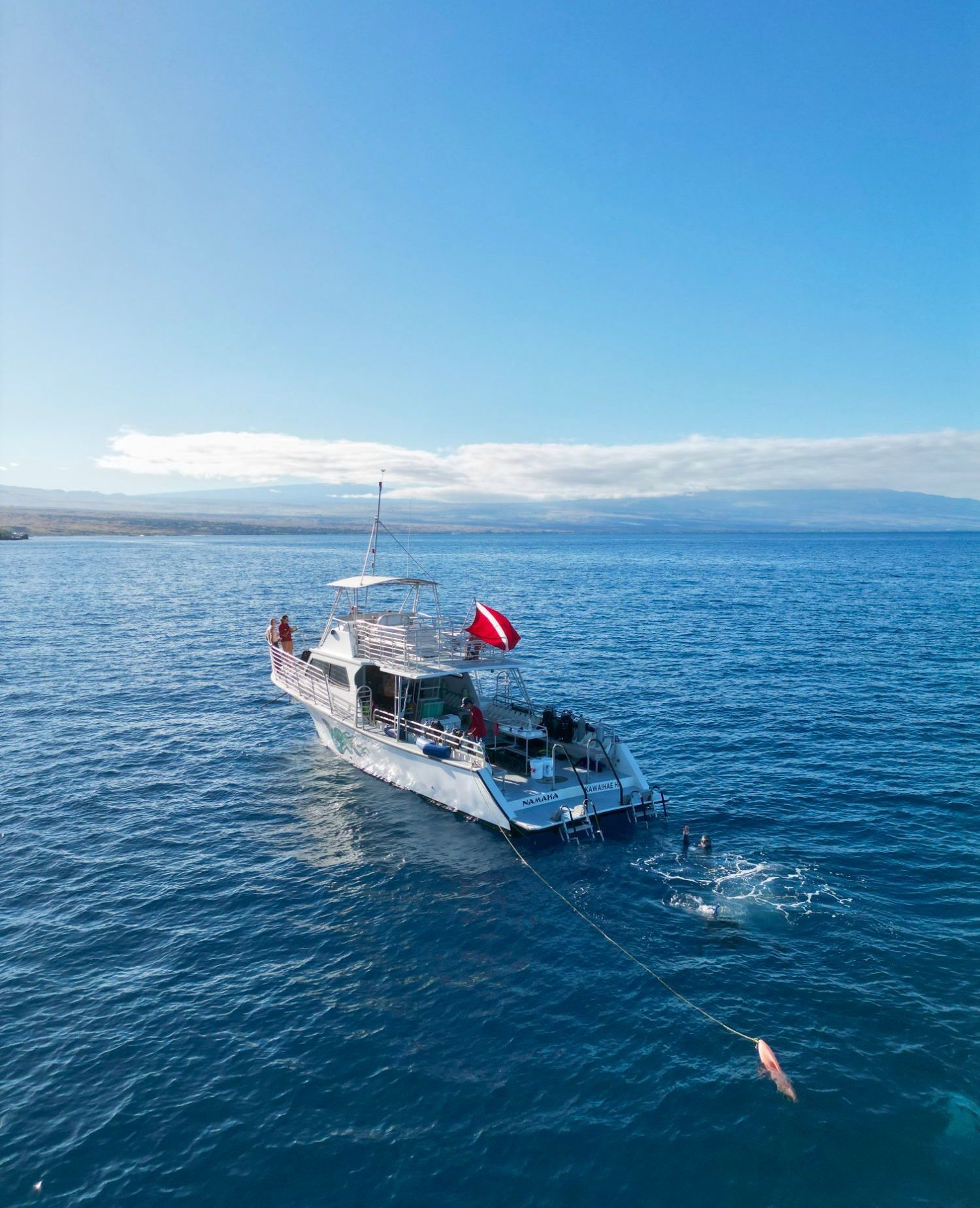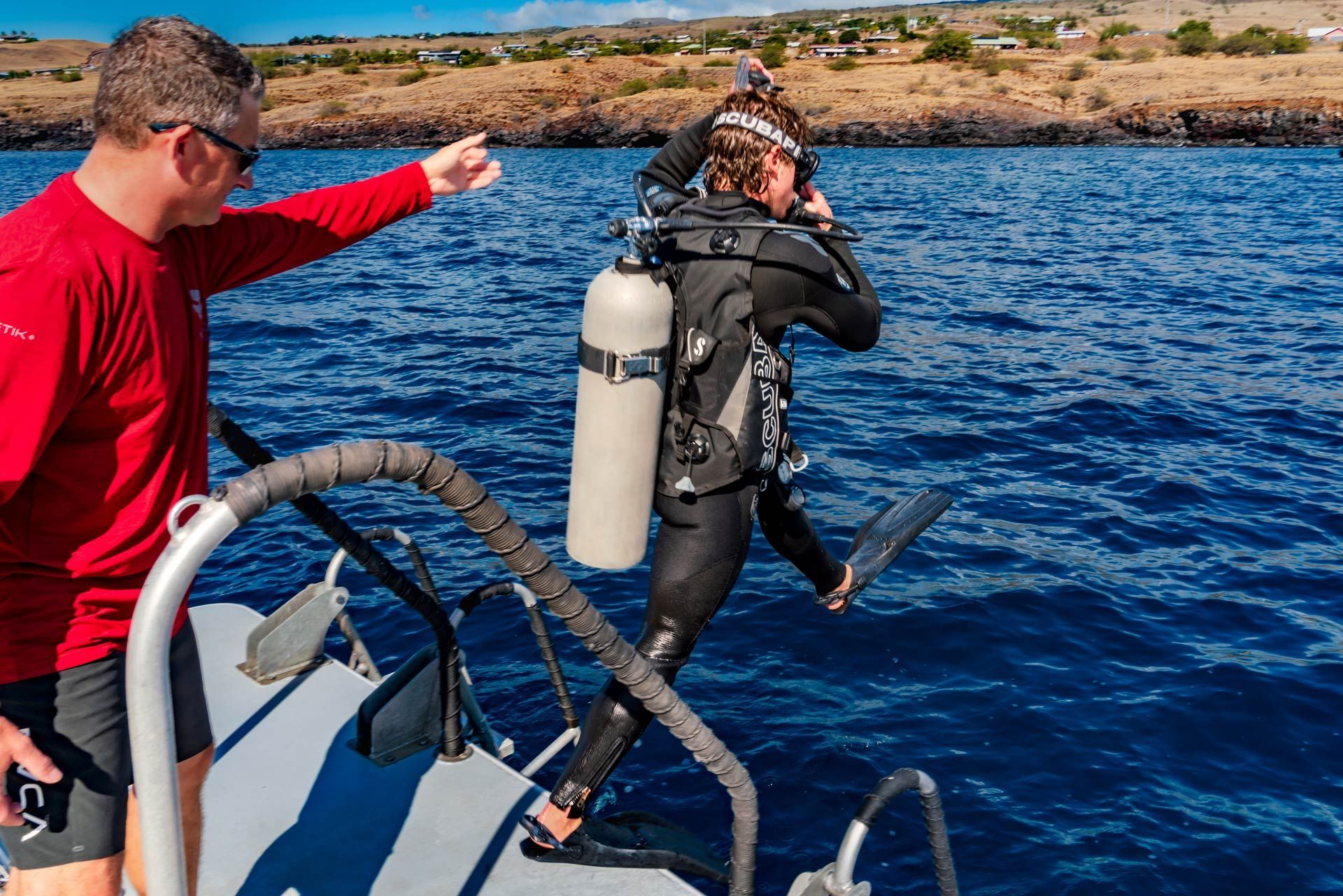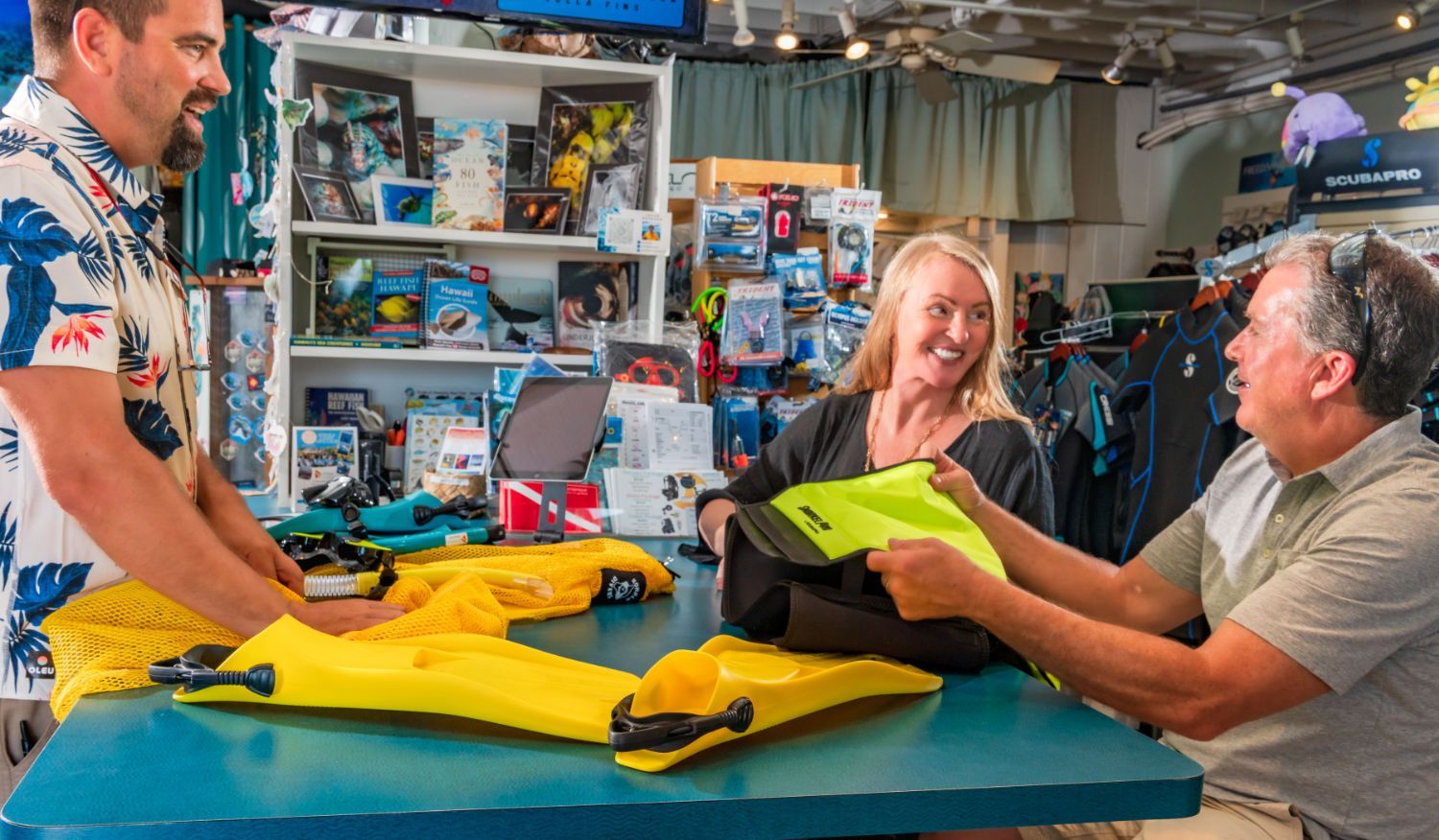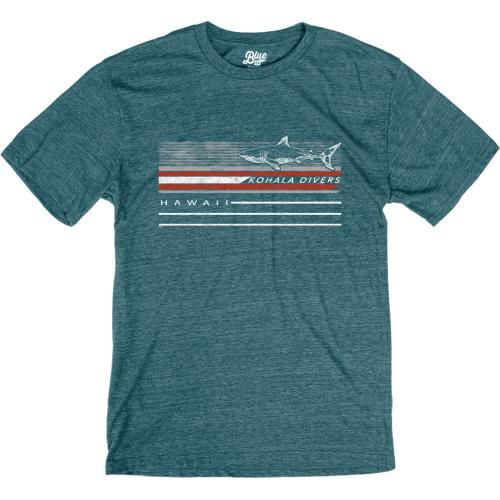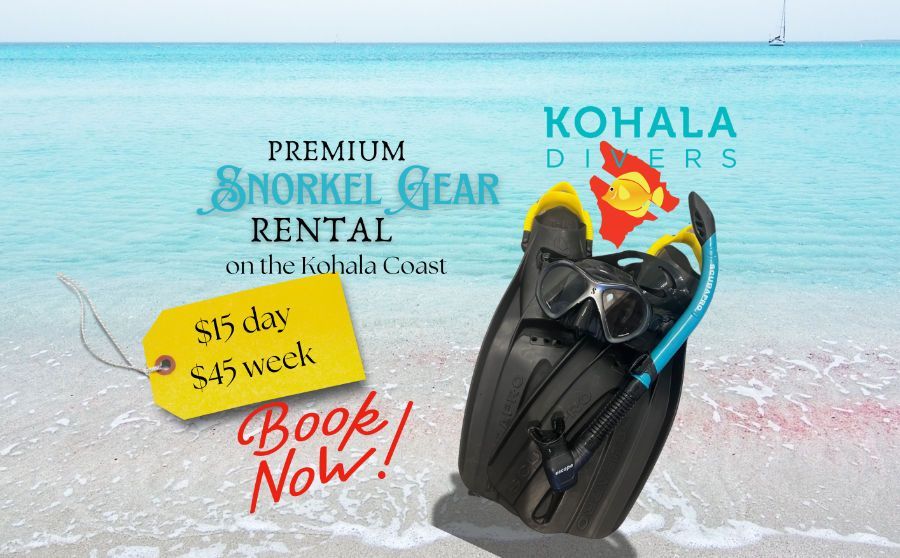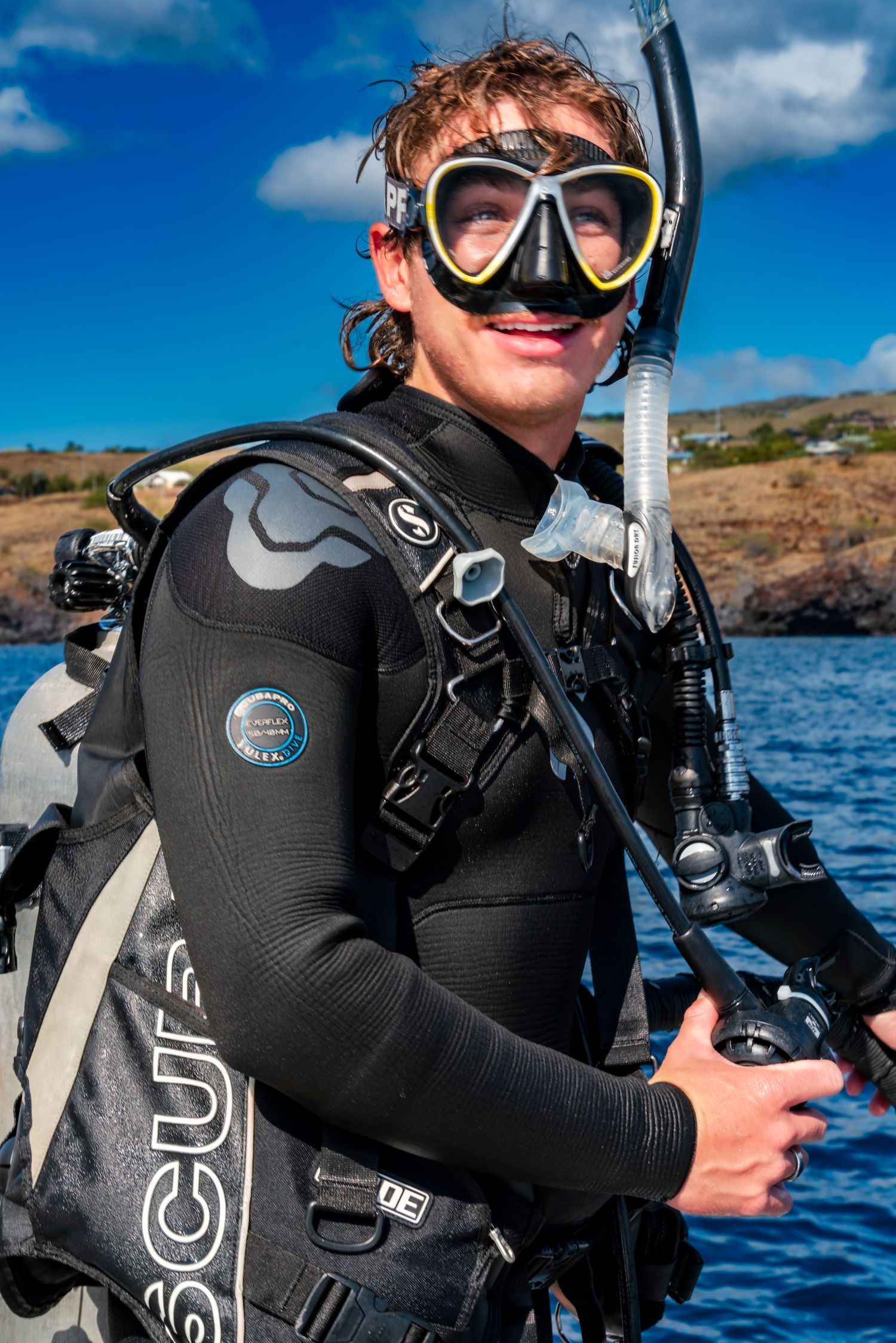WANT TO DIVE WITH YOUR KIDS? 10 THINGS TO CONSIDER.
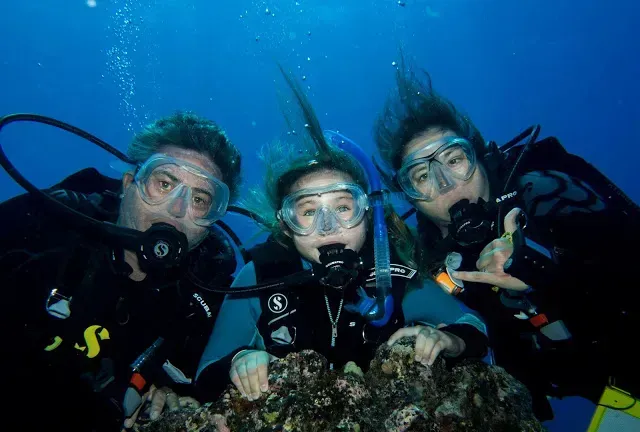
Many avid divers who become parents end up hanging up their fins when a baby enters their world. It can be challenging to keep up the sport while trying to raise little ones. Vacations tend to be more Disney themed than remote islands for quite a few years for most families.
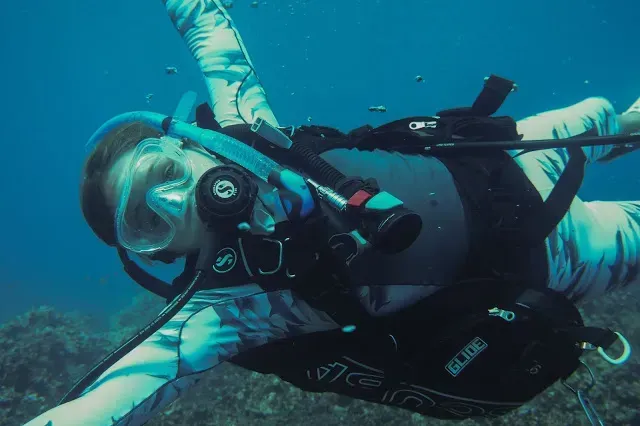
As your family ages however, the adventures tend to evolve. You want to share adventures with your kids.
Are you considering sharing your love of Scuba with your children? Want to know how to ease back into the sport yourself? Here is my advice on things I’ve learned from working with diving families over the years and recently getting my 10-year-old introduced to diving.
When I had my daughter 10 years ago, I was thrilled to imagine my own little dive buddy someday. At the time, it felt like that would be a lifetime away and then blink, here we are, her 10th birthday and she is getting certified. Where did the time go?
This is what I have learned from watching families who love to dive together and now being a dive family ourselves.
1. First You
If it has been a while since you have dived yourself it is a great idea to get yourself refreshed on diving separate from your child getting certified. Your nervous energy can be contagious, and you will be a stronger support and ultimately better dive buddy if you feel confident in your own skills underwater. Consider doing a refresher course which includes: Refreshing your academic dive knowledge online, followed by a pool session to refresh dive skills and to get reacquainted with equipment. This can be followed by boat dives with an instructor to practice your underwater skills while enjoying some great dives.
Sign up for reactivate online today
2. Ages and dive standards. When can kids dive?
PADI standards allow kids 10 and up to earn a junior open water certification. There are depth restrictions based on age even after certification:
- 10-12 year old are limited to 40 feet and must be accompanied by a certified adult while diving.
- 12-14 year old are limited to 60 feet (70 feet with continued education) and must dive with an adult certified diver.
All divers under 18 must have a parent or guardian sign administrative forms and liability release. Many Dive centers require divers under 18 be accompanied by an adult.
3. No Rush
The age for when you are allowed to dive and the best age to dive for your child may vary depending on the person. Diving takes multiple levels of maturity including ability to focus and study complex scientific theory. PADI training is delivered in an easy to understand and fun way to learn, but it does require focus, and comprehension.
Children’s size can make a difference in their ability to handle the gear for scuba. Dive gear comes in small sizes and is very adaptable to children but some may find it difficult to handle the gear in the way that’s required to get certified.
Another thing that can determine if your child is ready for SCUBA is their ears and equalization. If your kids love swimming and snorkeling have them practice freediving in shallow depths. My daughter would free dive to the bottom of our 10 foot deep pool from the time she was about 5 years old. I think this helped her ears adapt easier to the equalization needed in scuba.
If your child isn’t ready at a certain age don’t worry at all, you’ve got years to dive together! The less you try to rush it the more ready your child will feel when the time is right. If it’s not yet the time for them to start diving, try snorkeling with them. Also get your own dive lifestyle back in gear it will all change once you have that mini dive buddy by your side so enjoy the underwater me time.
4. What to Pack(Because kids need so much stuff)
Once your child is ready and enrolled in that PADI Scuba class don’t forget to set them up for success.
What to pack for pool lessons and boat days:
- Snacks!!! Are kids ever not hungry? Add the excitement and underwater play and you had better double up the healthy snacks!!
- Towel and layers on the boat. After being in the water even very warm air temps can feel cold so pack water resistant layers to bundle in. The best after-dive warmy is this boat coat from scubapro. It is an investment but so worth it. Better yet: get one for yourself and let them borrow it.
- Hair ties – Diving leads to messy hair. A mid head ponytail or better yet braid works great for taming hair. If you keep the hairstyle in the middle of the head it leaves a nice shelf for the mask strap to sit on.
- Mask comfort strap. This makes it easier to adjust where the mask strap sits and doesn’t pull hair, great for snorkelers and divers!!
- Reef safe sunscreen. Be sure to lather them in reef friendly sunscreen. Our boat Namaka has the stream to sea brand on board and sells it in the shop. A little but goes a long way so use only a tiny dab per area. Avoid applying to the face right before diving as it may get in the eyes if it hasn’t absorbed completely. I like the tinted version for everyday wear as you don’t end up looking ghostly.
- Rash guard Having a sun protection shirt is so helpful. You will use less sunscreen and kids won’t get sunburnt shoulders etc. Depending on the water temps they may be able to dive in just a rash guard? Otherwise they can wear it under a wetsuit or don it as soon as suit comes off.
5. Everyone kicks to their own drum
Kids look at the world through a vastly different lens than adults. At times it comes across as annoying or “not the right way” but if behavior is safe for scuba let them enjoy what they enjoy about being underwater. I’ve yet to see a kid in the water that doesn’t have more fun catching other divers bubbles then being serious swimmers. If they are taught that they need to be aware of buoyancy and not follow those bubbles up, hey it is pretty fun to bubble catch.
My daughter loves communicating above water and so she also needs to communicate a lot underwater. We’ve created our own little hand signal language. Sometimes we make each other laugh until our mask fills with water from our underwater jokes. The other day she surfaced with a hollowed sea urchin on her head and I fake sneezed parrot fish cocoon at her. Good thing she really learned her mask clear skill.
It’s ok to have fun above and below the water and kids are great at reminding us of that.
6. Energy, excitement and nerves
Learning to dive takes a lot of physical and mental energy and you may see your child’s behavior change when learning to dive. Kids often act hyperactive or change how they behave when they are stressed. Being nervous and being excited are such similar emotions your child may not know which they are feeling or how to channel it. Ask their feedback on what they are experiencing, this can help them recognize their feelings and channel nervousness into acting cautiously and thoughtfully.
Try to schedule some time to be a kid and get some energy out before lessons and then set expectations for times they need to be more focused on learning.
Trying to be overly strict or expecting them to be able to be as calm as adults is unrealistic and will lead to frustration for you both. If they are feeling overwhelmed the pace and planned schedule may need to be delayed, that’s ok. Celebrate accomplishments and leave room for learning at the right pace for them.
7. Your instructor knows scuba, you know your kid
Parents and kids seem to enjoy diving more when the parent trusts the instructor and allows them to be the teacher. When signing up for a dive class ask if the instructor is good with children and choose an operation that specializes in family diving! Once you feel confident in the instructor try to be a support to your child. It’s best not to interrupt or tell your child to do things in a different way than the instructor recommends. There are reasons the instructor has your child do skills in a certain way as they are highly trained in helping new divers learn new skills. Underwater if you choose to dive with your child during instruction observe the process but certainly don’t try to correct behavior or scold your child underwater. (Yes, we’ve seen it all).
On the other hand, even if your instructor has the most experience in teaching diving you know your child better. If you notice unusual behaviors or see stress in your child or feel your child isn’t paying their best attention reach out to the instructor privately and voice your concerns so they know to help the student in the best way. If your child is misbehaving such as disrespecting sea life, equipment or others than certainly there may need to be some parenting involved but it can usually be done privately and in a way that helps your young diver know what’s expected.
8.Welcome to a whole new outlook
Once your kid makes it through to certified diver status it is like rediscovering a love for diving in a whole new way. Things you’ve experienced under water 100 times are all new when sharing it. Dive travel can expand to allow the family to dive together and make exciting memories. Try to keep your family active in diving by diving locally and planning dive vacations as often as possible. Keep learning together by taking Specialty classes as a team.
9. Celebrate success
Whatever level your child makes it to in diving whether its just trying it in a pool, getting junior certified, or logging 10 dives, keep celebrating accomplishments together. Setting goals in diving will keep the sport fun and will likely keep their attention.
10. Congratulations you’ve raised an earth conscious adventurer who will make the world a better place!!
In this crazy world we live in, young people need more than ever a connection to nature and to others. Giving your child an opportunity to be part of scuba diving community builds confidence, instills a love of nature and adventure. Children who interact in a positive way with nature are more likely to care about it and get involved in helping to protect the environment. You never know where an early love of scuba will lead to for your child. A lifelong passion for the ocean? Future career? Great memories for sure!!
